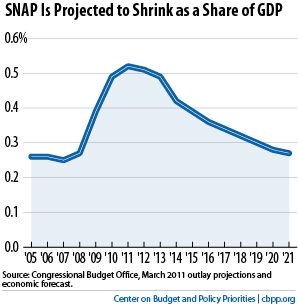SNAP works and we should protect it from harmful changes
| CommentsIf there was a private benefit program that could deliver a payment accuracy rate of 97% and a fraud rate of 1.5%, while also generating local economic impact, we would be extolling its success and attempting to replicate its processes to save money and deliver better service.
The corporate leaders running this program would, under no circumstances, try to dismantle the program or enact policy changes to make the program less effective, have more fraud and less accuracy. That wouldn’t be responsible.
So, why are our policymakers trying to do this with the SNAP program (formerly food stamps, FoodShare here in Wisconsin)?
Over the last few years, the program has seen unprecedented attacks and cuts.
Right here in Wisconsin, families utilizing the program to help them buy groceries so that they have the food they need to get back to work or learn in school have had to deal with two cuts in benefits and starting in April single-adults without children will soon be limited to 90 days of benefits every three years. An expensive and redundant drug testing proposal has been put forth which would increase the barriers to enrolling in the program.
And it’s not just our state. Our members of Congress are getting in on the act, too.
Earlier this week, the House introduced and passed a budget resolution which includes a proposal to cap funding and give control to the states to administer the program, otherwise known as block granting. This would give states a set amount of money and when those program funds run out, they run out. Block granting SNAP would severely limit the ability for the program to effectively respond to changes in need and could potentially create waiting lists for people who need food.
Every state is different and ensuring that states have the control to administer the program to fit the needs of their citizens is a good idea and that's exactly how the program is currently being administered. Our state - and every other state - has complete control over how it administers the program so long as it is compliant with Federal rules. With that comes the guarantee that funds will be available as need rises and retracts. This is a good thing - when times are good participation is down and when times get tough, the program can expand to catch those in need.
I understand many of the concerns that people have with the program. 47 million Americans enrolled in the program is a lot and our national budget priorities need to be addressed. I agree and I think it's important to put these concerns in context. The program grew so aggressively in the wake of the biggest economic downturn since the Great Depression, not because the program is somehow flawed or too easy to access.
And yet, with that growth, SNAP spending still amounted to less than 1% of the federal budget. Furthermore, SNAP has already experienced three rounds of cuts in last few years.
 The good news is that as the economy has slowly begun to recover, participation in the SNAP program has finally begun to decline. This good because it means more people are naturally leaving the program because they have jobs.
The good news is that as the economy has slowly begun to recover, participation in the SNAP program has finally begun to decline. This good because it means more people are naturally leaving the program because they have jobs.
And rather than making it harder for people to access the program by imposing arbitrary caps and limits, policymakers should focus on ways to effectively decrease SNAP enrollment by investing in job training that provides people with the right pathway to skills so that they can buy groceries with a paycheck from a good paying job.
As a safety net, SNAP does exactly what it was designed to do: provide people with low-incomes some help to buy the food they need to continue improving their lives.
